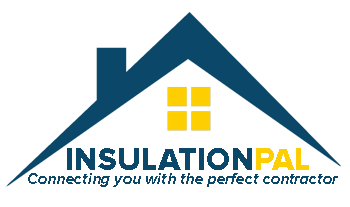Building Insulation Materials: Definition and What it is
Comprehensive category of all materials used to insulate buildings, including various types and applications.
What is Building Insulation Materials?
Building insulation materials encompass all products designed to reduce heat transfer in residential, commercial, and industrial structures. These materials range from traditional fiberglass and cellulose to advanced spray foams and rigid boards, each offering unique performance characteristics, costs, and installation requirements.
The insulation industry offers dozens of material options, each suited to specific applications, climates, and budgets. Traditional materials like fiberglass have dominated for decades due to affordability and proven performance. Eco-friendly options like cellulose appeal to green builders. High-performance spray foams command premium prices but deliver exceptional results. Understanding the full range of building insulation materials helps homeowners and contractors select the optimal solution for each unique application.
Categories of Building Insulation Materials
- Fibrous Insulation: Fiberglass, mineral wool, and natural fibers that trap air in fibrous matrices
- Foam Insulation: Spray foam (open and closed-cell), rigid foam boards (EPS, XPS, polyiso)
- Reflective Insulation: Radiant barriers and reflective foil products that block radiant heat
- Natural/Recycled Materials: Cellulose, cotton, wool, cork, and other sustainable options
Selecting the Right Building Insulation Material
Material selection depends on application area, climate zone, budget, and performance goals. For attics, blown cellulose and fiberglass offer cost-effective solutions. Basements benefit from moisture-resistant closed-cell foam or rigid foam boards. Walls can use batts, dense-pack cellulose, or spray foam depending on new construction versus retrofit. Always consider R-value requirements, air sealing needs, moisture management, fire safety, and total installed cost. Consult local building codes and energy programs for specific requirements and available rebates.
Benefits of Building Insulation Materials
- Wide range of options for every application and budget
- Materials optimized for specific performance characteristics
- Options for eco-conscious builders and homeowners
- Solutions available for DIY and professional installation
- Continuous innovation improving performance and sustainability
- Competitive market keeps pricing accessible
Building Insulation Materials Cost
Building insulation material costs vary dramatically based on type, R-value, and installation method.
- Material type (fiberglass: $0.30-$1/sq ft; spray foam: $1.50-$7/sq ft)
- R-value and thickness requirements
- Installation complexity (DIY batts vs. professional spray foam)
- Project size and economies of scale
- Regional material availability and shipping
- Special features (fire resistance, moisture control, soundproofing)
How InsulationPal Can Help You
InsulationPal connects you with licensed, experienced insulation contractors. Compare multiple quotes to get the best value for your project.
Free Quotes: Get multiple competitive quotes from pre-screened contractors.
Expert Matching: We match you with pros experienced in building insulation materials.
Quality Assurance: Licensed, insured, and verified contractors.
Related Services and Resources
Explore all services we offer
Expert guides and tips on insulation
